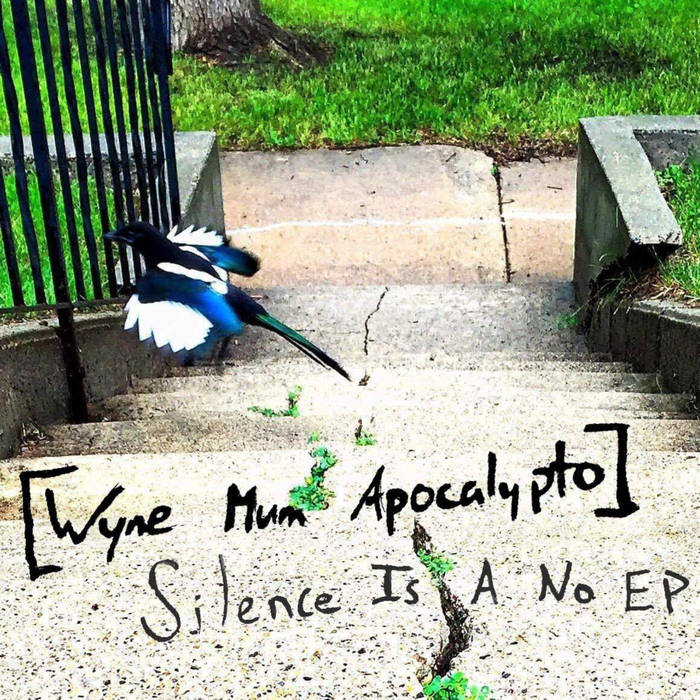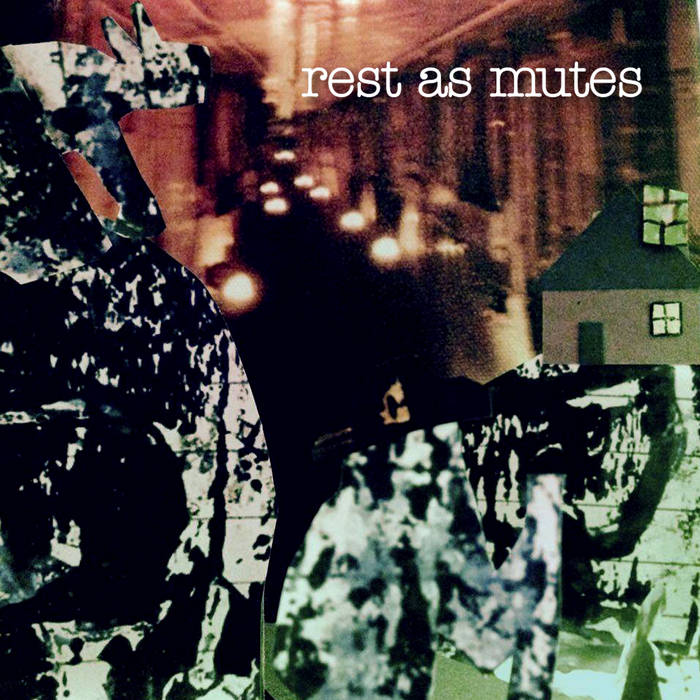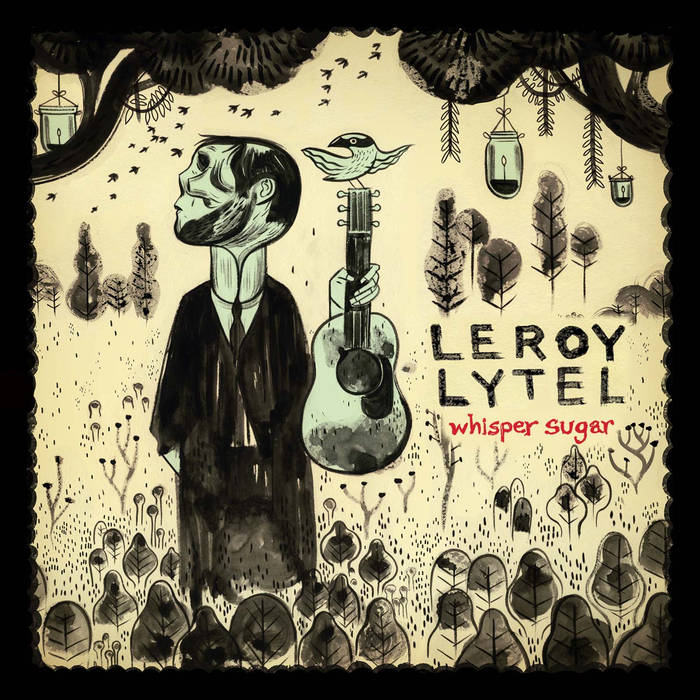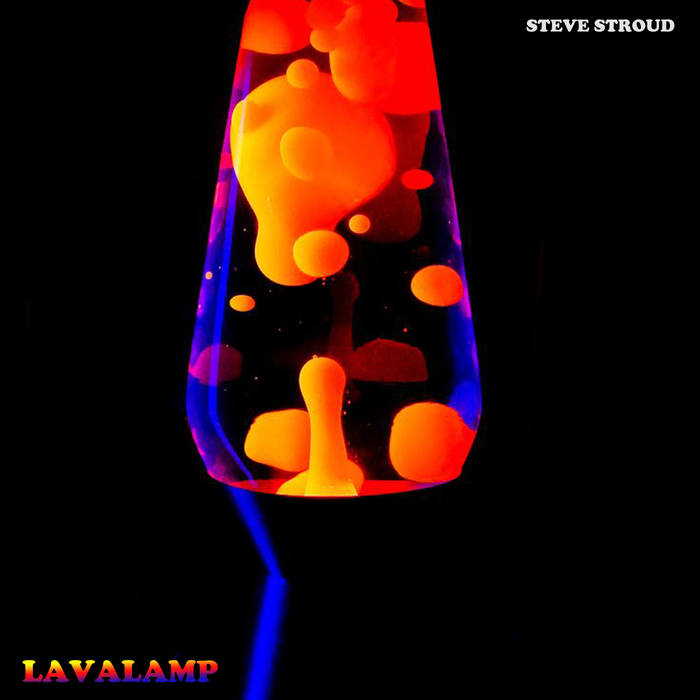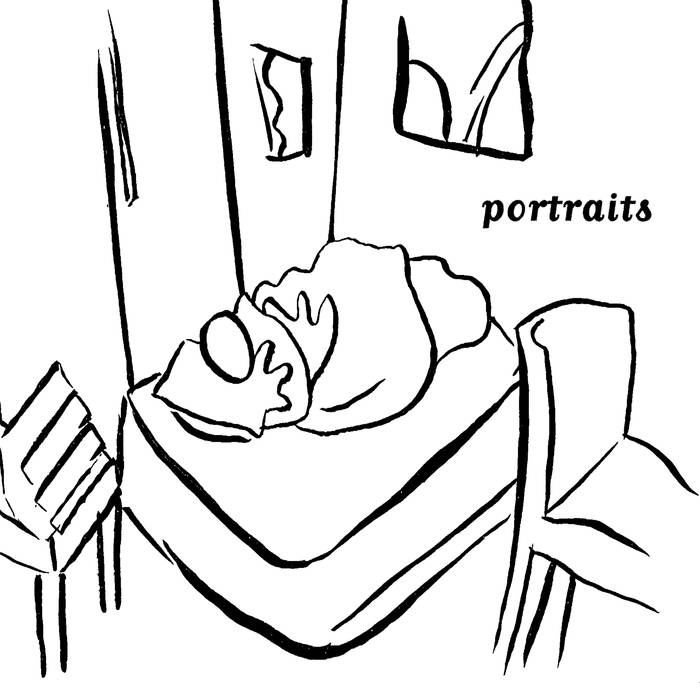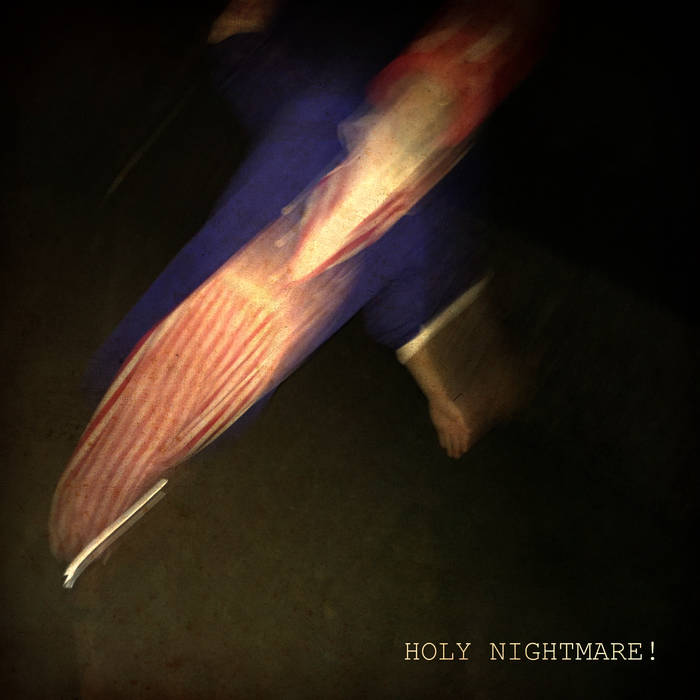|
Every week we mention a couple of artists that are worth your time to check out that were not featured in our weekly reviews.
Artist Album Rating be you me be you me 3.6 Nora Marks We Don't Have to Do This 3.6 Darkness Within The Pages Losing All 3.5 HOT DAM HOT DAM 3.5 Flaccid Ashbacks try the soup 3.5
0 Comments
Samuel Rafuse and Jesse Wilson are Wyne Mum Apocalypto. They recently released Silence Is A No EP. Right off the bat I have to say this is one of the most most lo-fi sounding albums I have heard.
The drums almost sound like just the reverb you might place on a kit; there are harsh noises that make it impossible to turn up and I couldn’t understand most of the lyrics. If there's any advice I have for them it is to learn and implement better production and engineering. There are plenty of tools you can use within programs like Garageband that could help out home recording with some basic know-how. They open with an instrumental song entitled “Projects.” He picks a guitar progression and pretty soon a drum beat comes in. I’m not sure what was going on with the timing but something seemed off. The song soon revolves around basic strummed chords and the same beat. That's about it. That being said it has a good energy. There should be a warning with “I’m An Astronaut” because it’s around 4-5 dbs louder than the opener with a lot of high frequencies around the 10k range. I really couldn't make out much because the guitar masks the other elements. In addition to that the vocals are covered in reverb. At its best the song has comparison to Joy Division and early Sonic Youth. I liked the vibe. It’s funny because the issues are exactly the opposite on the next song. “Arriving” is a bit experimental and ambient if you want to call it that. There is no separation between the elements and it is mostly over run with distorted frequencies. They close with “Silence Is A No” which seems to be an attempt at post-rock. The band uses orchestral synths towards the beginning. Around the seven-minute-mark it is jarringly interrupted by a raw recording of a guitar. From then on the song felt like a ball of white noise. Luckily, I like white noise. Every song on this EP had a different feel. They call themselves a post-rock band but the only song that was within post-rock territory was “Silence Is A No.” I say this with love that more than anything the band needs to get better recording the next time around. For right now they are a case of wait and see.
The Seattle musical duo Rest as Mutes, made up of two guys named Adam and Jason have each been making and playing music around the Seattle area since the turn of this century. The pair met when Adam was playing in a band called Masks Phantoms and Jason was in a band called Juhu Beach. They played for a time together in the psych-folk project Yonderlow. Each of them has also done solo projects both in music and documentary film making.
But most of that is in the past and Rest as Mutes is their current recording project and their debut record There Has to be a Somewhere is a kitchen sink of much of the band’s previous fiddling about. Its post punk and electronic elements meld with psychedelic folksy pop and delirious melancholic lo-fi pop. There Has to be a Somewhere is like a musical flea market and each of the six songs is a radically different stall that sounds nothing like the stall on either side. I struggled to find any sort of coherence linking the songs together, some consistency, which I would get onto the trail of and then wonder if I was just trying to make sense of the fact that I was just fully immersed in the strange beauty that the record has to offer at each turn. We open upon the nine-minute “We Could Follow the Coast” a dust storm of swirling synths and click-track drum beats and a slightly jangly riff. The vocals hide out in the hazy background, but the song also adds sound bites which take the forefront and help to advance the plot so to speak, or drive home the meaning of the song in place of any sort of clearly sung lyrics. Next we move into the very psychedelic guitar-synth “Nary Does a Man” which as it moves along over nine minutes gets a bit weird in a Tobin Sprout lo-fi way. Rest as Mutes quiet things down later on the mellow and thirteen-minute long Sparklehorse meets Brian Eno “This isn't the Jesus You Know.” It seems a bit too long for its own good. It doesn’t really offer up any reason to keep listening after some time unless you have the record on as background noise. It collapses into a very simple and quite by now slightly overdone field of noise. In many ways this same misfortunes befalls “You Were” until one gets to the juicier bits of searing guitar in the middle, before the song once again retreats into cutting and pasting ethereal soundscapes and bits of voices. There are many delights in the early half of There Has to be a Somewhere, however after a time thirteen minutes of looped synths, tape hiss and sound clips of talking heads or Baptist preachers just gets a little redundant. However when these guys are making music with real instruments they sound like serious contenders. Recommended.
Hailing from the foothills of northern California, Flint & Tinder is an acoustic group that incorporates elements of many genres into a unique, intriguing style. The band has a rich history of members with David Martin the primary singer and songwriter of the group being the common denominator throughout. Released in January of 2017, Flint & Tinder is a collection of seven original songs ranging from folk to funk and from gypsy waltz to epic soundtrack music.
“Through A Pinhole” starts off the album with a rush of energy and introduces the listener to the band’s typical soundscape: an acoustic guitar, violin and bass guitar undergirding Martin’s full voice. Jazzy chords mixed with sweet notes from the violin blend well with the carefree, yet precise, vocal melodies to create a head-bobbing, relaxing beachfront sound with hints of folk peppered throughout the song. The band’s technical skill is highlighted in “Infinite Beach” as lightning-paced guitar backs up Martin’s unfettered singing, which reaches far into his range. A pulsing violin brings an added rhythm to the track, just as it does in the melody of “Gypsy Pirate Waltz” a slow paced, yet energetic track that lives up to its name with ease and style. A subdued beat opens “No Giving Up” a harmonic funk song that expands and gradually crescendos as the tune progresses to include synthesizer sounds, gently strummed guitar chords, lush strings and tight vocal harmonies. The beautiful “Set Sail” features arpeggiated chords on multiple instruments that coalesce into a full, ambient soundscape that Martin sings sweetly over. Unconventional instrumentation brings additional flavor to the record in “Illuminocity” a reflective piece that borders somewhere between folk, soft psychedelic rock and reggae. The album comes to an end with “Watersong” a song that slowly but surely runs the gamut of the band’s special talent, whether in vocals or in instrumentation. As a whole, this album sheds light on Flint & Tinder’s natural ability to create, perform and record quality music and stands as a testament to the band’s extraordinary potential and musical mastery.
Oftentimes first projects are highly disorganized, and, to be blunt, sporadic. This can be both good and bad, though— on one hand, it could be that the band offers a diverse selection of strong sounds and melodies, and on the other the disorganization could prove to be too much. I’m relieved to say that Omesse, a four-piece located in Malmo, Sweden, gravitated toward the former with their debut, eponymous EP Omesse.
The album starts out with “Bound” an unbelievably catchy, fun tune that is just absolutely groovy. The song reminded me of a lot of artists like Glass Animals and Alt-J with its funky yet pop-sensible approach. The song just rides, man. To be honest, the tune does stand out from the rest on the album, which has me conflicted, as I would have liked to hear more along these lines. I was not disappointed with what I received, though. The next song “Be a Darling” sounded nothing like the first— rather, it was slow, emotional and melancholy. Featuring a cello as well as falsetto-filled vocals, the song provided a bold contrast to the former. I am not saying it was better or worse— rather, it was just different. Two completely dissimilar genres of music both done well, so I suppose that is a testament to Omesse’s ability to bounce in and out of genres on command and with ease. Moving on to the fourth track “Remains” I was reminded very distinctly of two very different artists— the riff at the beginning sounded a lot like something out of Neil Young’s early catalogue, however it also sounded eerily similar to a riff in a Freelance Whale’s song titled “Broken Horse.” Once the vocals settled in, the song took more of a folksy route, which was nice in its own. As far as production goes, I think the EP sounds excellent. It is warm, full and pleasant. The levels are really nice and each song achieved the effect it was aiming for. This is interesting as each song aimed at something disparate. Moving onward, I would like to see Omesse solidify their vision and construct a more focused approach to their songwriting. They do a lot of things well, so I guess it is up to them to figure out what they most want. Personally, I think they should pursue their weirder/groovier side as it is addicting. They do the more mellow, folksy side well, too; there are just a lot of other people doing it. I look forward to hearing what Omesse puts out in the future.
Leroy Lytel's Whisper Sugar is an eclectic album that highlights the artist’s haunting voice. This is the type of voice that audiences automatically recognize; it reminds me of the likes of the deep-voiced Gordon Lightfoot.
Lytel's style is a mix of folk story telling, classic rock, indie and just a touch of the blues. He seems to take just enough of each genre to give him something new and interesting. The lyrics of each song tell the type of stories we can each identify with. They range from the daily pursuit of happiness in an unsure world to just the small things we tend to worry about. “Outta Your Head” was by far my favorite track of the set. The blues influence was strong and there was even a hint of a bit of a gospel twist. The song followed Lytel from his fear about life to a point of looking to faith to get through. This song is exactly what that small voice in your head that keeps the fear alive sounds like. I think most people can see themselves fighting to just get past the negative self doubt that can be crippling. “Other Side of Fear” is a continuation of the story. It is about pushing beyond your own fear to find out what living is all about. “Last Man to Do Here Wrong” was an interesting song because it hits on an almost never-ending cycle of abuse that starts as a child. The story starts with the abuse of a father to his daughter, and this would start off a life time of bad relationships. It seems like it is an all too familiar story, except this one ends in an unexpected way. It quickly goes from just another folk piece to an almost urban legend. “Whisper Sugar” is a haunting reminder of what happens when time gets away from us. In the fast paced world, it is easy to put off what is important. It is too easy to let things go and lose connection to the ones we live. It was almost a love song but in a very sad way. “Forever in Your Eyes” is a similar love song of sorts. The overall themes of the album are deeply rooted in day to day life. It is about the things that we allow to derail the best parts of life. Lytel's voice is by far the best part of each song. The storytelling would be the next best feature. I look forward to more from the artist; I feel like I want to know how the story turns out.
Steve Stroud is a singer, songwriter and guitarist from Liverpool, England. Lavalamp is his third solo project. Written, recorded and mastered all by Stroud, this project is on another planet. Rich with themes such as religion, political theory, science and space this vibe-heavy project hosts a variety of sounds and feels.
The album kicks off with “Basecamp” a spacey tune that feels as if it’s from the future. With lots of sampled sounds that sound like the cockpit of a space shuttle from your favorite science fiction novel, this song is a perfect kickstart to the project. “Just a Boy” comes in next with a lighthearted feel and a catchy chorus; this song was definitely a favorite. “Lavalamp” is the third song on the installment and it comes in with a classic rock feel. About halfway through the song there is a breakdown that turns this into an almost entirely different song until the last minute. This definitely was a reflection of the diverse sounds Stroud is able to create. “Mynah Babies” makes use of spacey synths, a groovy bass and a little bit of piano. If I were ever stuck in space floating endlessly, this would be the soundtrack I would want. “When You Started Feeling Lonely” is another variation of Stroud’s unique sound. I can't help but imagine an entire crowd sitting on a grassy knoll with lighters waving in the air. “European Strong” has some of the strongest lyrics on the entire album. Stroud mixes critiques of religion, social media and class differentiation to construct a symphony of modern issues. The bridge and hook are extremely catchy and have a very warm and emotional feel to them. This was most definitely my favorite song on the album and I found myself replaying it over and over again. “Stage Fright” is a jammy tune that focuses on being yourself and hoping everyone around accepts this. The final song is “I Want To Give You So Much Joy” with more aggressive instrumentation but softer dictation with the lyrics; this contrasting tune is a contradiction cocktail. The song rides out with a long instrumental and does well to complete the album. Overall this was a very pleasant listen. There were so many different sounds and feels that I never got bored or annoyed with hearing the same thing over and over. The spacey feel mixed with political lyrics made for a piece that was pleasing to listen to while challenging to understand. I would recommend giving this a few listens to get the full effect.
The Pygmy Tribe began in 2012 because of one songwriter’s love for the natural and restrained instrumentation present without folk music, but he also captures essences of a numerous and eclectic range of genres whilst expressing himself through a powerful and emotive sound. Of course, the ethereal atmospheres and swooping instrumentals were intended only as a background to powerful lyrics and vocals, according to the band’s own words.
It was a solo effort for a few years, but, since then, the band has grown. It now consists of Daniel Lyter (drummer), Jon Westbrook (lead guitarist), Cesar Pino (piano) Geoff Hardy (bassist) and Sal Plant (lead singer/acoustic guitarist). They plan to tour this very same year, and I am looking forward to that. The Pygmy Tribe’s latest eight-track EP entitled Portraits opens with “When Will I Wake Up?” An ominous synth chord warbles continuously as the vocalist murmurs “My love / You saying something / It sounds nothing I ever wanna hear.” Instantly, I’m taken aback by the entirely unique sound of the vocals. While initially I thought the singing might not gel well with my taste, I was won over as the song progressed and the vocalist’s soothing tones blended with a pumped up beat and a mellow, melodic acoustic chord progression. He begins to harmonize with himself, and the unique vocals suddenly sound completely at home. While this was the most notable part of the track, for me, the organ solo towards the end is also worthy of praise. I think “Open Boat” is a beautiful track, and I knew that within seconds of the rainfall sample merging with a sleek, melancholic, acoustic guitar-picking pattern. Again, the vocalist adds something to the track with his husky, melodic, yet entirely unique singing style. The combination of acoustic and clean guitar over a clicking, clacking drum beat creates a beautiful atmosphere. A surf-rock-esque guitar solo joins sweeping synthetic strings following a particularly emotive and powerful chorus. There are many layers going on in this track, but not chaotically so. “You Were Right” is almost entirely acoustic, joined by an occasional spattering of ethereal organ notes and, of course, the vocalist’s swooping, powerful singing. It contains a few more moments of organ solos and other such sonic flourishes, though nothing particularly unexpected as with the previous tracks. “Amazing Pictures” sounds like the lovechild of Radiohead and The Doors. It’s an acoustic track laden with punchy, concise drumming and a dissonant acoustic guitar-picking pattern. The vocalist, once again, harmonizes with multi-layered vocals. His soothing, yet husky voice carries this melancholic, nostalgic and heart-breaking track forward. This was an unexpectedly punchy, clear and intimate track, using The Pygmy Tribe’s strengths in a brand new way. It focuses more on clarity and intimacy than the vagueness of ethereal sounds. The two vocal tracks singing different things in the climax blended perfectly, and this was certainly a highlight of the EP. You can certainly pick out the strengths of The Pygmy Tribe, which seem to lie in their ability to create soothing, ethereal and entirely unique music. This is well worth a listen.
Become A Fan
Holy Nightmare!’s self-titled debut EP Holy Nightmare! that was released on December 28 is an emo project that’s heavy on the rock side. Their sound is a hybrid of Godspeed You! Black Emperor and Foxing.
Max Shorey, the brainpower behind this project, said that he has always had an inherent desire to create something lasting and meaningful. Well, he really does that here. Throughout this impressively complete EP, the artist lays down an array of vocal tracks that are insightful and reflective, paired with un-simple and compelling instrumentation that pull at the waist and force you to stare down complicated answers to big picture questions. Each song is distinct. Shorey plays peek-a-boo with the listener on almost every track; building and falling again and again with background yells and growls filling the voids and attributing to the subtle emo-ness of the EP as a whole. He does a fine job of maintaining the listener’s attention from beginning to end which is also one of the best qualities of this project. Holy Nightmare! EP glides through brief moments of serene listening, eventually graduating to deep, introspective reflection regarding love, humanity and even spirituality. Shorey really takes his audience on a journey through his brain on this record. I felt encased; claustrophobic, even, on “The Madness” when Shorey talks about waking up in a cage every day, waiting for a soul to come out of his face. “I’m just trapped inside it's galaxy ‘till I die,” he sings, implicitly describing his perception of the body’s cage-like function for the soul. Shorey furthers his deliberation with spirituality on “Silverscreen” when he pulls a slight mind-f*ck out of his pocket in wondering if God is just a man eternally sleeping and that, “We’re just his dream.” Shorey’s mature expression of open-mindedness on this record is refreshing because it seems like many artists are quick to draw a line between right and wrong - especially regarding religion and faith. On the opposite end of the spectrum, Shorey makes love scientific. He opens the fifth track, ironically titled “Black Cat” with the question, “What sort of chemical would you be if you could mix with me?” Opposite of his spiritual side, Shorey tries to make mathematical sense of attraction - but does it ever really add up? He reasons that love, though it may not be a physical chemical, acts in a way that moves in people and creates an inexplicable bond with others. The more American-Football-emo-eqsue lyricism comes out on tracks such as “Just Like Art” when Shorey admits, “A harp player follows me everywhere I go. / It waits for the day diamonds pour down my throat.” Holy Nightmare! EP is instrumentally sound to the point that the music can really speak for itself. Shorey is vocally patient on “Let Go Of The Ground” when he waits until the second minute of the song to begin singing. I was a tad thrown off, yet I wasn’t bored because of the dreamy keys and distorted rhythm guitar that requires an accompanying head nod. The background screaming made this record more intriguing as it brought to mind memories of listening to Hawthorne Heights on the middle school bus. The screaming isn’t making or breaking any single track, but it’s surely feeding the songs more character. “Black Cat” had the most epic ending on this EP due to the exemplary screamo buildup in the bridge, driving home even more the feeling of love and the questions that revolve around it. A lot of people will enjoy this record. Fans of emo and prog rock will be especially pleased, while even hip-hop fans will admire Shorey’s imaginative lyricism. I’m looking forward to Holy Nightmare!’s next release after this favorable start.
Tidyi is the solo effort from Alex Buhlig. He released There Is Nothing Wrong with You. earlier this year which is a nine-song album.
This is a dense album which just feels like it has a lot of things going on. The drums are constantly on full assault and the guitars are covered in distortion. It’s an album that really demands exceptional production and recording quality. Suffice it to say there were a number of issues in this department with the main one being the separation of instruments and the ability to hear the vocals. There Is Nothing Wrong with You. embraces genres like prog rock, post-rock and metal and thought I thought some of the playing was excellent. I just wanted to hear more details. Up first is “Out in Front.” You are treated to rumbling dissonance that takes over the stereo width before the assault of instrumentation happens. A constant kick drum and aggressive lead guitar is almost overwhelming. The song sounds like old school German Industrial music. If you enjoy this song you will enjoy the rest of the album. There is no warning that “Sphinx” sounds like the beginning of “Even Flow” on steroids. The song is intense and the drumming is out of control. I was starting to warm up to his vocal style even though it was so buried in the mix. “The Internet Doctor” was a highlight and I enjoyed the pacing of the song and the unorthodox changes that happened throughout. The guitar work towards the end is chaotic in a good way. “Trigger Warning” is pure technical talent and marches forward with a military-like precision while the title track has some synth inspired moments towards the end of the track. As the album progress the album is pretty solid including the notable “Wormhole” which is quite epic. Despite the issues I had with the recording quality at times I was still able to enjoy the album. The songs are sprawling as fit so much in that each song take you through a dynamic journey. It’s definitely worth some of your time to check out.
Become A Fan
|
Critique/insightWe are dedicated to informing the public about the different types of independent music that is available for your listening pleasure as well as giving the artist a professional critique from a seasoned music geek. We critique a wide variety of niche genres like experimental, IDM, electronic, ambient, shoegaze and much more.
Are you one of our faithful visitors who enjoys our website? Like us on Facebook
Archives
July 2024
|

